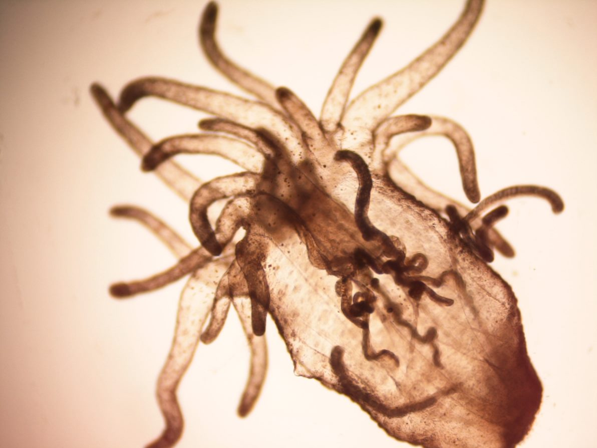 Coral disease is a major threat to reef ecosystems and therefore understanding the molecular and cellular pathways that corals use to combat diseases is critical to reducing future outbreaks. A new study published in Developmental and Comparative Immunology that was co-authored by BSC graduate student MaryBeth rowland focused on tyrosinase-like proteins in cnidarians (e.g., corals). These tyrosinase-like proteins contribute to invertebrate immune defenses. Specifically, characterization and phylogenetic analysis of Cnidarian tyrosinases were performed to investigate their role in symbiosis and a “mystery disease” found in the closely related sea anemone, Exaiptasia pallida. The results revealed that phylum Cnidaria contains a diversity of tyrosinase-like proteins, and at one point in time, there was a functional divergence creating two identifiable groups of tyrosinase-like proteins. Two E. pallida tyrosinase genes were further investigated and showed no differences between symbiotic state, but the tests did show that there was less tyrosinase gene expression when the E. pallida were in late disease stages. Overall this work provides evidence for the participation of tyrosinases in the cnidarian immune response and increases the scientific community’s understanding of the cellular pathways that corals respond to pathogens.
Coral disease is a major threat to reef ecosystems and therefore understanding the molecular and cellular pathways that corals use to combat diseases is critical to reducing future outbreaks. A new study published in Developmental and Comparative Immunology that was co-authored by BSC graduate student MaryBeth rowland focused on tyrosinase-like proteins in cnidarians (e.g., corals). These tyrosinase-like proteins contribute to invertebrate immune defenses. Specifically, characterization and phylogenetic analysis of Cnidarian tyrosinases were performed to investigate their role in symbiosis and a “mystery disease” found in the closely related sea anemone, Exaiptasia pallida. The results revealed that phylum Cnidaria contains a diversity of tyrosinase-like proteins, and at one point in time, there was a functional divergence creating two identifiable groups of tyrosinase-like proteins. Two E. pallida tyrosinase genes were further investigated and showed no differences between symbiotic state, but the tests did show that there was less tyrosinase gene expression when the E. pallida were in late disease stages. Overall this work provides evidence for the participation of tyrosinases in the cnidarian immune response and increases the scientific community’s understanding of the cellular pathways that corals respond to pathogens.